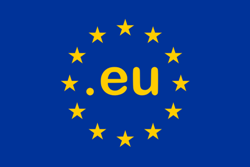EU says reforms are needed to stop to loss of biodiversity
 Athens - The European target of halting the loss of biodiversity by 2010 has not yet been achieved and more reforms are necessary to slow species loss across the EU, officials said at the end of a two-day conference in Athens Tuesday. "We have achieved a lot, but there is still much to do by 2010 such as better administration and greater funding, as well as extending protected areas," EU Environment Commissioner Stavros Dimas told reporters.
Athens - The European target of halting the loss of biodiversity by 2010 has not yet been achieved and more reforms are necessary to slow species loss across the EU, officials said at the end of a two-day conference in Athens Tuesday. "We have achieved a lot, but there is still much to do by 2010 such as better administration and greater funding, as well as extending protected areas," EU Environment Commissioner Stavros Dimas told reporters.
"The fact is that biodiversity loss poses a threat every bit as worrying as climate change," he said.
Hundreds of environmental chiefs, trade associations, non- governmental organizations and lobby groups met in the Greek capital in the wake of a G8-Plus environment meeting from Group of Eight members Britain, Canada, France, Germany, Italy, Japan, Russia and the United States.
Climate change, land use change, habitat destruction, pollution and waste disposal all pose a growing threat to biodiversity at a time when most of Europe's species and habitats are at the risk of extinction.
There is growing evidence that the decline of ecosystems and species is continuing despite the progress made EU environmental legislation such as the Birds and Habitats Directive, the water Framework Directive, the Marine Framework Directive and Atmospheric Pollution framework.
With 25,000 sites, Natura 2000 is the largest network of protected areas in the world but officials at the conference said a coherent approach to spatial planning needs to be developed and the Natura network should be completed, managed effectively and resourced appropriately.
Reforms decided at the conference in Athens include better management of protected areas, which now make up more than 20 per cent of the European Union territory; increasing biodiversity research, and ensuring that available funds are channelled towards nature protection projects.
"We are losing natural capital by ignoring diversity as 3-4 trillion dollars are lost from forests and fresh water that is over utilised," said Anders Wijkman, an European Parliament MEP.
Officials said global deforestation must be stopped by 2030 and measures are needed to address the impact of European patterns of consumption on global biodiversity loss.
"The European Union has developed effective policies but the problem still lies in implementation and proper financing," said John Hontelez from the European Environmental Bureau (EEB).
Talks on saving Europe's biodiversity followed a three-day international environment meeting in Syracuse, Italy on April 24 where G8 industrial countries and major developing economies signed a charter pledging to tackle deforestation, curb illegal trade in wildlife and boost research into the rate of species loss.
Extinction rates are currently running at around 1,000 times their natural pace, with three species vanishing every hour, according to UN statistics.(dpa)